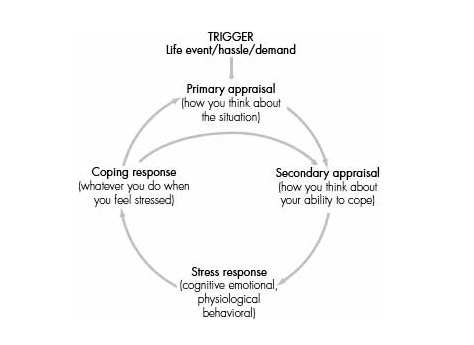
Stress is so common that we will all encounter it at some point or another in our lives. It arises from life events such as starting university, moving houses, bereavement, unemployment, relationship problems, and difficulties at work but the list is non-exhaustive. Stress sometimes can be a positive thing as it can kick us into action. For the most of it, it affects us in a negative way.
However, stress means different things to different people. Life events that might cause an individual severe stress might not affect another just as bad. How one feels is not as much determined by events and changes in the outside world, but by how these are perceived and responded to. One can learn to recognise own responses to stress and develop skills to deal with it.
In cognitive-behavioural therapy (CBT), the first stage of stress management is called the formulation. This is a map of how the stressful situations, your symptoms and coping style influence each other. Cognitions and appraisals are pivotal in the formulation.
Stress has many aspects: there are stress symptoms (cognitive, behavioural, physiological or emotional), stressors (life events, hassles or uplifts), and coping strategies (avoidant, emotional, including the use of alcohol, stress carrying or problem-solving).

-
A Cognitive formulation of stress
Stress depends on cycles between all these different components, so tackling one component should improve the experience of stress. As appraisal is central in the stress response, identifying the stress appraisals is essential. Stress symptoms should alleviate once the blanks are filled in and the vicious cycle broken.
-
How Can I Learn About Stress Management In London?





















